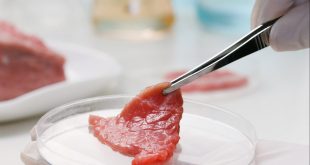Personalized dietary advice based on a person’s genetic makeup improves eating habits compared to current “one-size-fits-all” dietary recommendations, says a University of Toronto researcher.
“We conducted the first randomized, controlled trial to determine the impact of disclosing DNA-based dietary advice on eating habits,” said Ahmed El-Sohemy, an associate professor in nutritional sciences and Canada Research Chair in Nutrigenomics. “We found that people who receive DNA-based advice improve their diet to a greater extent than those who receive the standard dietary advice.
Nutrigenomics is a field of research that aims to understand why some people respond differently than others to the same foods. Personalized nutrition, a branch of personalized medicine, is an application of nutrigenomics that helps tailor dietary recommendations to a person’s DNA.
The researchers collected data on the intake of caffeine, sodium, vitamin C and sugar from 138 healthy young adults. The subjects were then randomized into two different study groups – one was given DNA-based dietary advice for each of the four dietary components of interest, and the other group was given current standard dietary advice for the same dietary components with no genetic information.
Changes in their dietary habits were assessed after three and 12 months. The researchers found that subjects who received DNA-based dietary advice started to show improvements to their diets after three months and the changes became even more apparent after 12 months. Specifically, those who were informed that they carried a version of a gene linked to salt intake and high blood pressure significantly reduced their sodium intake, in accordance with the recommendation, compared to the group that was not given genetic information and received the standard advice for sodium intake.
 Canadian Food Business
Canadian Food Business




